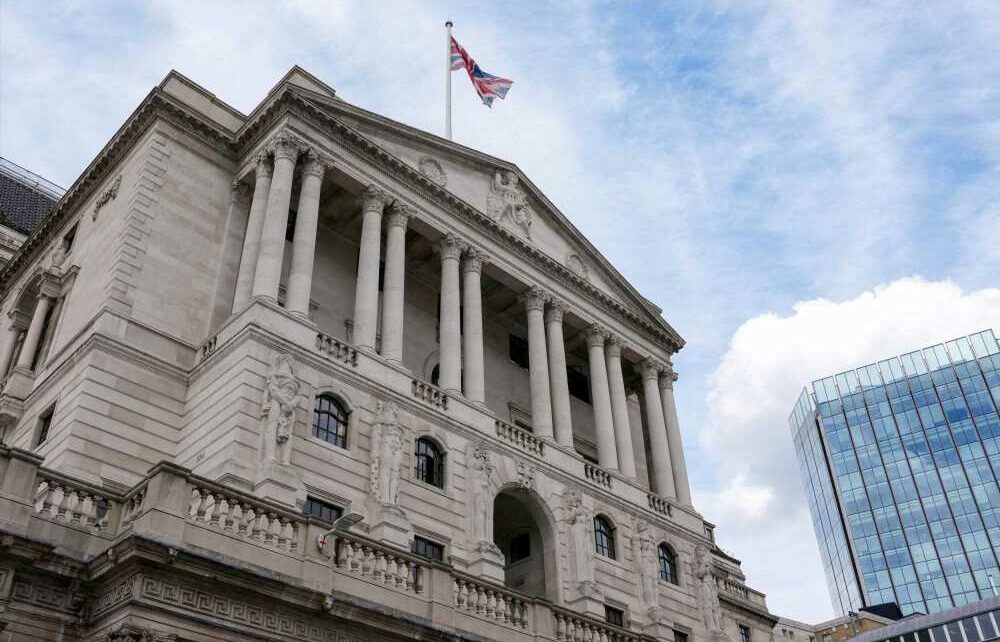THE BANK of England (BoE) has hiked interest rates to a new 15-year high.
The central bank has increased rates by 0.25 percentage points from 5% to 5.25% -meaning millions of homeowners are facing higher mortgage repayments.


This is the fourteenth time in a row that the Bank of England (BoE) has raised rates since December 2021 when they were at historic lows.
Rates are already at a 15-year high and this latest increase means that the base rate is now equivalent to levels last seen in March 2008.
Interest is a fee you pay for borrowing money and is what banks pay you for saving with them.
The rate changes will affect you if you've got debt, including a mortgage, or a savings account.
READ MORE IN MONEY

First-time buyer mortgages slashed by more than half – what to do now

I’m a mortgage expert – how the mini Budget U-turn could affect interest rates
Mortgages are decided against the BoE base rate.
The move is bad news for those wanting to borrow, such as first-time buyers,and will also make the repayments on loans, credit cards and mortgage repayments more expensive.
There are 639,000 residential tracker mortgages outstanding.
The exact amount your mortgage will increase depends on your borrowing and your loan-to-value
Most read in Money

Mortgage warning for millions as Bank of England hikes interest rates again

Wetherspoons increase cost of pints to £7 – check which boozers are affected

I tried McDonald’s new menu – a burger 'with a twist' should be permanent

PM tells families to extend mortgages – as interest rates set to rise AGAIN
Some 773,000 residential SVR mortgages are outstanding.
But the hike is good news for savers as they may get better rates on their savings.
In summary, a hike in interest rates is bad for borrowers but may be good news for savers.
We explain what the base rate is and how the increase will impact your finances.
What is the Bank of England base rate?
The BoE base rate is sometimes just known as Bank Rate.
It influences how much interest banks will charge on loans or pay out for savings.
The Bank Rate is set by the BoE's Monetary Policy Committee.
The new BoE base rate is 5.25% up from 5%.
When the BoE lowers interest rates consumers tend to increase spending, while lowering them has the opposite effect.
Increasing interest rates is like a lever for slowing down inflation – but it means the cost of borrowing increases.
This means that consumers and businesses have less money to spend, and in theory, as demand for goods and services fall, so should prices.
The bank is tasked with keeping inflation at 2%.
Hiking interest rates is a way of trying to reach this target.
Lifting interest rates is meant to encourage people to save, rather than spend, which in theory should help bring rampant inflation under control.
Why are interest rates going up?
The rising cost of living has led to the BoE increasing the Bank Rate.
The committee has upped the rate to try and curb inflation.
It is the twelfth time in a row that the Bank has hiked interest rates.
This will have a knock on effect on the rates set by high street banks.
Banks don't have to adapt their own interest rates on saving and borrowing following the announcement, but they usually do.
But interest rates might not change by the same amount at the Bank Rate.
That's because banks need to pay less on savings than they make on lending.
How will the changes impact my finances?
The base rate increase could impact your finances.
How the changes affect you will depend on your personal circumstances.
Many homeowners would pay more on their mortgage repayments if interest rates go up.
If you're on a fixed-rate mortgage, the increase won't immediately affect your payments.
But other mortgages, such as a tracker or standard variable rate mortgage, could be impacted straight away.
Tracker mortgages are linked to the Bank of England base rate – which means you will see an immediate impact on your mortgage repayments if rates go up.
Homeowners on variable rate mortgages wouldn't see their repayments go up straight away, but they would likely increase shortly after interest rates are hiked.
Your bank should tell you about a change to your SVR before it goes up.
SVRs are generally higher than fixed rate deals, so if you're on one then you're likely already be paying more than you need to already.
Moving to a fixed rate mortgage could help you avoid future rises by locking in a lower rate.
You might find that the interest rate on your credit card or overdraft will rise along with a Bank of England rate hike.
Many big banks – like Lloyds Bank, MBNA, Halifax and Barclaycard – link their credit card rates directly to the Bank of England base rate.
That means their credit card rates will hike automatically in line with any changes to interest rates – but you'll be given notice before this happens.
You can check the terms and conditions of your credit card to see if the rate can go up when the base rate does.
Rising Bank of England rates could have a knock-on effect on how much tax you are paying.
That's because the government would have to pay more for its borrowing.
What mortgage help is available?
More than 30 lenders have signed up to a new mortgage charter to offer struggling households more support.
But the new measures are meant to provide breathing space for struggling homeowners.
Customers approaching the end of a fixed-rate deal now have the chance to lock in a deal up to six months ahead.
Homeowners will be able to request a better deal with their lender right up until their new term starts if one is available.
Plus, any homeowner will be able to approach their lender for advice on repayments without impacting their credit score.
Homeowners will be able to change their mortgage to interest only and extend the terms of their loan.
This change will also have no impact on the homeowner's credit score.
As soon as you think you will have a problem with your monthly mortgage repayment – whether you can’t pay anything, can't pay all of your monthly payment or can’t pay it on time – get in touch with your lender straight away.
They have certain schemes in place to help you if you're struggling.
You can ask your lender about the breathing space scheme if you're finding payments unaffordable.
Under the breathing space scheme, none of your debts will earn interest and no fees will be added for 60 days.
You'll be protected from debt collectors and bailiffs.
You may also be able to apply for a payment holiday – this is when you don't need to pay anything.
But interest and charges may continue to be added, and missed payments will need to be made up in the future.
Every company has a different policy so you'll need to get in touch to find out what support is available to you.
Many local councils have Welfare Assistance schemes to help struggling families.
Help available varies, but you could get free cash, food vouchers, and help for bills like rent and energy.
Check with your council to see whether you are eligible and what you can claim.
The Household Support Fund (HSF) is another scheme available through your local council.
It's designed to help those in most need with payments towards the rising cost of food, energy, and water bills.
Check with your council directly to see what's on offer as some share money with charities which can then give you cash or food vouchers.
Some councils restrict how often you can apply for money through this scheme to once a year, so double-check.
Support for mortgage interest or SMI helps those on Universal Credit – and other benefits – by giving them a low-interest loan.
The help goes towards mortgage payments or towards loans taken out to help repair any damage to the home.
SMI is a loan that you will need to repay with interest when you sell your home.
You'll get help paying the interest on up to £200,000 of your loan or mortgage.
But you'll only get up to £100,000 if you're getting Pension Credit.
Read More on The Sun

I’m a laundry expert – how to remove sun cream stains and why it’s SO hard

Big Brother legend Lisa Appleton now working as an Amazon delivery driver
The interest added to the loan can go up or down, but the rate will not change more than twice a year – the current rate is 3.03%.
Contact the office that pays your benefit to find out if you could get an SMI loan.
Do you have a money problem that needs sorting? Get in touch by emailing [email protected].
You can also join our new Sun Money Facebook group to share stories and tips and engage with the consumer team and other group members.
Source: Read Full Article


